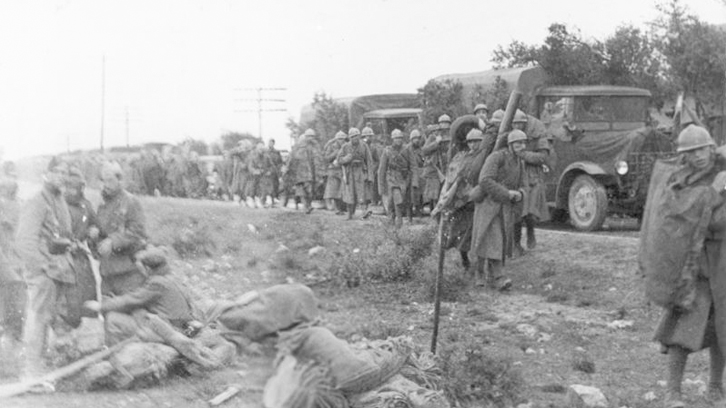The participation of fascist volunteers in the Spanish Civil War

The Civil War of 1936-1939 was the most important armed conflict of the 20th century in Spain. It meant the emergence of total war in Spain, involving almost all the Spanish population in the war effort in both sides, something that was reflected in the half million people dead at the fronts and because of the violence implemented in the rearguards. A brutal and devastating impact on the Spanish society which reverberated on the rest of the continent, where all the looks were focused on what was taking place in Spain.
In this sense, the Spanish Civil War also was the most important armed conflict of the European interwar period, because of the implication of many of the actors who, just a few months after its end, got involved into history’s bloodiest war, the Second World War. The ideological background of the Spanish war, one of the various elements explaining its causes and virulence, reproduced the dynamics of political clash which were devastating Europe since the triumph of the Russian Revolution: the revolutionary threat and the preventive reaction of wide sectors of the Right which saw in this winds of change, revolutionary or not, a true menace of the hierarchical ruling social order. Because of that, Spain was perceived as a key –national– scenario in the global fight between revolution and counterrevolution, something that decisively influenced the imaginaries of many individuals who didn’t hesitate to travel to the Iberian Peninsula to die for their ideas.
Among all of them, the International Brigades have been, undoubtedly, the ones receiving more historiographical attention. Nonetheless, within the rebel side the number of foreign combatants, some volunteers and some others forced in a certain way, was way higher, reaching around 115,000 men considering the Italians of the Corpo Truppe Volontarie, the Germans of the Condor Legion, and smaller contingents which didn’t form relevant military units such the Portuguese, the French, the white Russians, the Romanians, the Belgians or the men coming from various Latin American countries and who, all of them, essentially fought in the Foreign Legion or in the Tercios of requetés, the Carlists units.
These numbers show the crucial importance that the Spanish Civil War had in the perceptions of the European counterrevolution as an opportunity to stop the expansion of Marxism through the continent. Indeed, many of these foreign volunteers saw the fight in Spain as a combat for the very European –Christian– civilisation, as showed in the memoirs and war diaries they wrote or in the many letter they send to the rebel’s HQ offering their service as soldiers. This, however, does not mean that we should not pay attention to other motivations to became a volunteer, more pragmatic and mundane, like adventure, the salary or, simply, the concept of war as a job. But, despite this, the significant foreign contribution and what it meant for the triumph of fascism in Spain, as well as the tremendous impact the war had in the imaginaries of many European counterrevolutionaries, highlight the ideological element as a crucial dimension of the war experience of these volunteers in the trenches of the Spanish Civil War.
Contemporary History Area
Universitat Autònoma de Barcelona
References
Miguel Alonso Ibarra: “Guerra Civil Española y contrarrevolución. El fascismo europeo bajo el signo de la santa cruz”, Ayer, 109 (2018), pp. 269-295.

